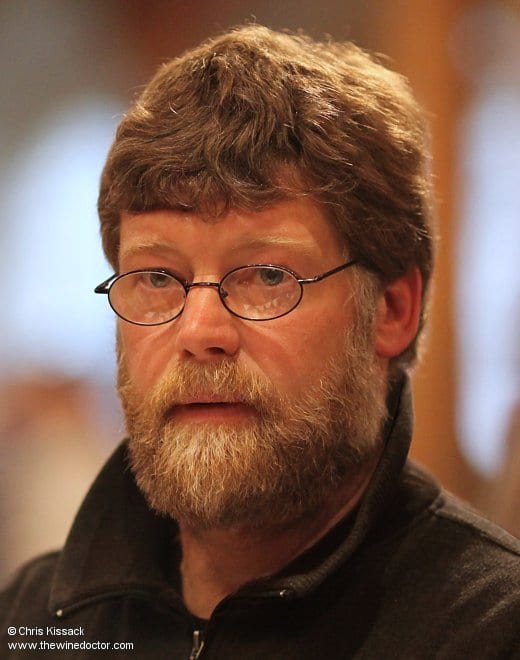Richard Leroy, 2013 Update
My gut feeling is that Richard Leroy requires no introduction, but maybe this is an overly personal, blinkered point of view. My experience with his wines is considerable; they hold the same position in my cellar as those of Domaine Huet, in that I have bought in every vintage to date, going back about ten years. Obviously I have much older vintages of Huet tucked away (back to 1946 if that matters) but we can’t hold this against Richard, who only kicked off in the mid-1990s. This belief in the man, and the quality of his wines, is reflected in this presentation of notes from a tasting of his wines which I recently hosted, using bottles from my cellar. Nevertheless, although Richard Leroy is to Anjou what Château Pontet-Canet is to Pauillac (I’m thinking of his biodynamic philosophy and independence of mind, rather than the horses, hyperbole and high prices found in Bordeaux), I wouldn’t really be doing a very good job if I just assumed everybody reading was up to speed. So before I get round to the tasting, a few words on Richard.
In the early 1990s Richard Leroy was a banker working in Paris, and he was lapping up its rich gastronomic scene, and in particular he was enjoying discovering the great wines of Bordeaux, Burgundy and beyond. Many of these wines he encountered at a tasting group he joined called Grains Nobles. I have to confess that the first time Richard recounted this story to me I thought he told me he was working in Grenoble; of course, this reflects the feebleness of my linguistic skills rather than Richard’s pronunciation. Eventually he decided he wanted to make rather than drink wine, and this ultimately led him to the Loire, and Rablay-sur-Layon. Richard is therefore one of the newcomers, many of whom are drawn to the Loire Valley as here they can afford to buy (or rent) vineyards, the prices remaining very reasonable compared to Bordeaux or Burgundy. One day I should write a book about these people – Frantz Saumon, Xavier Weisskopf, Lise and Bertrand Jousset, Eric Nicolas and others – because they are rewriting the story of the Loire.
Although Richard (pictured) settled with his family in Rablay-sur-Layon, his most important vineyard is just across the other side of the Layon, in the commune of Faye d’Anjou, one of the villages of the Coteaux du Layon appellation. At first his wines were very typical of the region, that is to say he made sweet wine, but as the years passed Richard became more enamoured with sustainable farming and working more naturally in the cellars. In order to reduce his dependence on sulphur dioxide when making the wine he moved away from sweeter wines, which need greater protection against refermentation, to favour drier styles instead. He has not (to my knowledge) made any sweet wine for ten years now; he produces only two dry cuvées from two plots of vines, Les Noëls de Montbenault and the Clos des Rouliers. Now eschewing the appellation system altogether, the latter has been bottled as Les Rouliers since the 2008 vintage.

